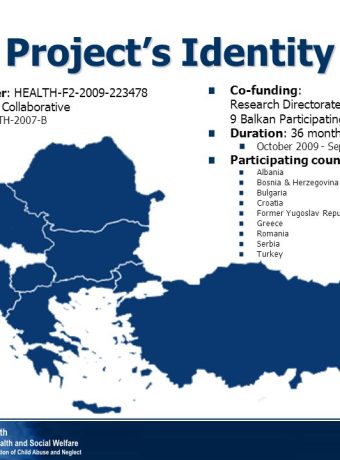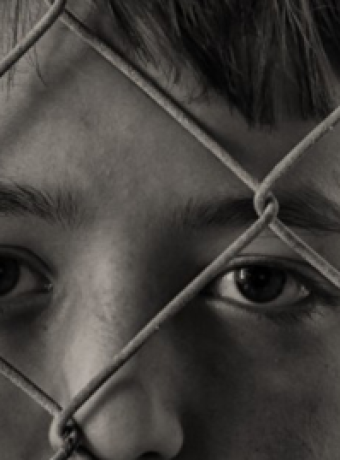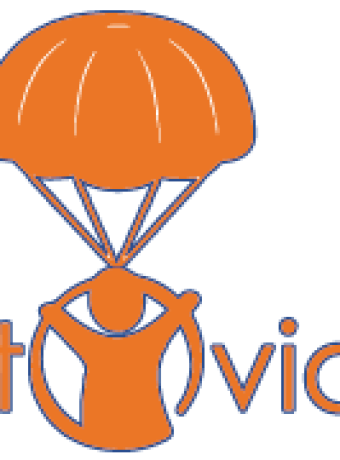Assessing and improving access to health and social care SErvices for children RENdered vulnerable by Abuse – SERENA
PROJECT DESCRIPTION
Effective support for maltreated children
Child maltreatment remains a widespread and underreported issue across Europe with devastating impacts on victims and society. Despite existing health and social care services, many children continue to face barriers to accessing timely and effective support. The long-term effects of maltreatment, including physical and mental health issues, often worsen due to poor detection and inadequate care pathways. Furthermore, the societal and financial burden of child maltreatment remains high. The EU-funded SERENA project aims to improve access to services across Europe. Through assessments of current barriers to access, SERENA will identify key actions to improve maltreatment detection and management, and reduce long-term consequences. The project will generate recommendations to influence policy and practice.
Objective
SERENA will accelerate efforts to improve access to health and social care (HSC) for child victims of maltreatment (physical, sexual, psychological abuse and neglect) throughout Europe. The major ambition of SERENA is to identify and promote the means of improving the detection of child maltreatment (CM), of limiting its consequences (recurrence, severe conditions), and reducing the induced burden for victims, families, and society.
This ambition will be supported by assessments of current care pathways (HSC services), the barriers and inequalities when accessing these services (before and after the recognition of CM, including children’s physical and mental health conditions), as well as the financial burden on a societal level. Our assessments will rely on a mixed-method approach combining qualitative analyses in 3 EU countries (interviews with adult survivors of CM (ASCM) and HSC professionals) and quantitative analyses (longitudinal cohort study based on HSC administrative data in 7 countries, but also aggregated CPS data in 26 countries). An interdisciplinary participatory synthesis of the findings (with stakeholders and ASCM) will deliver a co-constructed assessment of the situation and the definition of priority actions. Finally, we will design and promote, through the consortium’s extensive network, operationally and economically viable recommendations with potential for transposability across the EU for policy makers and HSC services.
The SERENA recommendations will encourage changes in policies in all EU member states so that HSC daily practice can i) be assessed in terms of validity and availability of the services in all areas, ii) identify necessary evolutions to be encouraged through legislative measures (data collection and exchange between HSC services), and iii) provide an awaited shift in CM management. The resulting effects of these changes will include improved detection of CM cases and HSC access, improved management and reduced overall costs.
Coordinating organization:
INSTITUT NATIONAL DE LA SANTE ET DE LA RECHERCHE MEDICALE, France
Partners Organizations:
AARHUS UNIVERSITET, Denmark
CARDIFF UNIVERSITY, United Kingdom
CENTRE HOSPITALIER REG UNIVERSITAIRE DIJON, France
CHILD AND FAMILY AGENCY, Ireland
COFAC COOPERATIVA DE FORMACAO E ANIMACAO CULTURAL CRL, Portugal
ERASMUS UNIVERSITEIT ROTTERDAM, Netherlands
FRANCE EUROPE INNOVATION SAS, France
INSERM TRANSFERT SA, France
INSTITOUTON YGEIAS TOU PAIDIOU, Greece
MEDIZINISCHE UNIVERSITAET WIEN, Austria
OBSERVATOIRE REGIONAL DE LA SANTE DE BOURGOGNE, France
REGION HOVEDSTADEN, Denmark
ROCKWOOL FOUNDATION, Denmark
STOCKHOLMS UNIVERSITET, Sweden
SWANSEA UNIVERSITY, United Kingdom
TECHNOLOGICAL UNIVERSITY DUBLIN, Ireland
UNIVERSITAET ULM, Germany
UNIVERSITATEA BABES BOLYAI, Romania
UNIVERSITE DIJON BOURGOGNE, France
UNIVERSITY COLLEGE LONDON, United Kingdom
ZURCHER HOCHSCHULE FUR ANGEWANDTE WISSENSCHAFTEN, Switzerland
Contact: [email protected]
Website: www.serena-horizon.eu
LinkedIn: https://www.linkedin.com/company/projectserena/posts/?feedView=all&viewAsMember=true
More info: https://cordis.europa.eu/project/id/101151854





